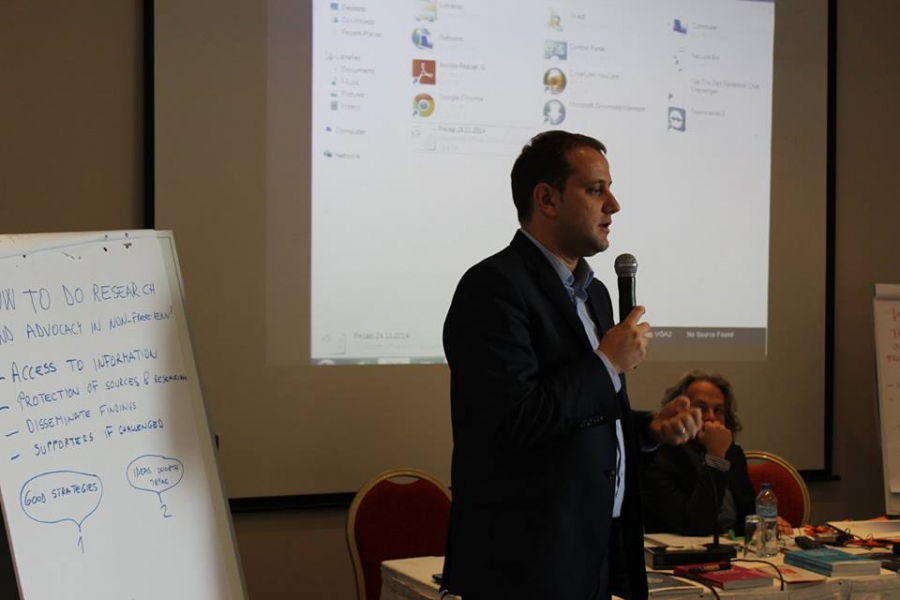25/11/2014

KCSS executive director, Florian Qehaja attended the three-day workshop “Shared experiences of Civil Society Organizations working on Strategic Studies and Research-related issues in the Palestinian territory and in the Western Balkans” organized by the Democratic Control of Armed Forces (DCAF). The workshop was also attended by the director of Belgrade Center for Security Policy (BCSP) and officers of DCAF from Geneva and Ramallah.
The general purpose of this workshop was sharing the experiences of the Balkans with Palestine, in governance and the security sector. The Balkans have gone through a difficult transition to post-conflict, which contains experiences that when transmitted to Palestinian activists and researchers are expected to serve in the direction of democratization and freedom of association.
KCSS Director, Florian Qehaja contributed as an expert to discuss the current state of security sector governance on the Western Balkans, how can civil society effectively contribute to democratic security sector governance and what are the challenges for civil society organization. Qehaja shared experiences including research and analysis in the context of complex states, including in the period of conflict. He also shared his experience on the role of research organizations in the absence of institutions. Florian Qehaja told of how advocacy methods can hold government accountable, how to communicate in a difficult conflict environment and how to make sure your message reaches the right public.
Furthermore, a workshop was based on group work sessions in which participants had the opportunity to discuss and explore research possibilities. During this three-day workshop, group work was focused on advocacy and accountability in a complex context.
The agenda consisted of several sessions which were mostly led or presented by two experts from the Balkans:
-First Session: Challenges to democratic security sector governance in the Western Balkans and the Palestinian territory
-Second Session: Positioning of Civil Society Organizations in a transitional context – the example of the Belgrade Centre for Security Policy (BCSP)” and “Researching in a state-building context – the example of the Kosovar Center for Security Studies (KCSS)”
-Third Session: How can Civil Society Organizations influence security sector governance and reform?
-Fourth Session: The role of research in holding government accountable
-Fifth Session: How to improve the organizational development of CSOs
-Sixth Session: Advocacy and accountability in a complex context